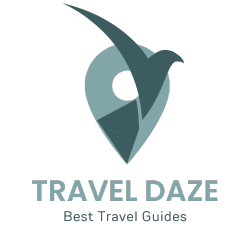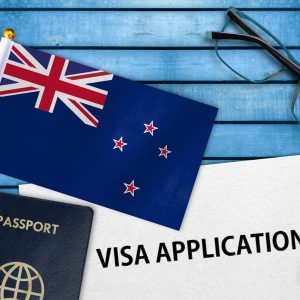Hi there, adventurers! I am Caroline Daze, a sun-seeking nomad from St. Louis, Missouri. Just recently, I turned a new page in my passport. I went to New Zealand for a working vacation. That was it. It gave me chills just thinking about exploring all those green hills and feeling the crisp Kiwi air. But let us get real for a second: as thrilling as it is to wander into the unknown, it is not all hobbits and hangis; you have got to sort your insurance out too.
Table of Contents
ToggleSo, exactly why am I so excited about working holiday insurance now? Simply because I have learned the hard way that absolutely nothing deflates the travel high like an unforeseen mishap without coverage—imagine nursing a sprained ankle with just sheep for company because you skimped on insurance. So before you whip out that haka or even go searching for that perfect photo opp by Lake Wanaka, let us discuss insuring your Kiwi vacation with some insurance know-how.
I am going to spill the beans on exactly how to obtain New Zealand Working Holiday Insurance. No yawning; absolutely no yawning is permitted. This isn’t Grandma talking about insurance! Think of me as your buddy on the trailblazing trail who did her homework so that you are able to frolic among kiwis (fruit or bird—pick your poison). Get ready for some first-hand advice on how to dodge the curveballs of life down under—oh, somebody forgot their map to Hobbiton!
Holiday Insurance Recommended
I have used, and I’m still using, for all my trips.
I can personally recommend an insurance policy from EKTA. It was a decision that offered peace of mind, knowing that I was protected against unexpected events. I use them every time I travel abroad, and they never let me down.
The process of purchasing the policy is straightforward, and when I had to contact them with more questions, I was impressed by the customer service, which is actually available 24/7. I didn’t face any major incidents, but it was reassuring to know that I had EKTA’s support, especially being far from home.
You can check their insurance details and options by yourself on the EKTA Insurance Website.
Key Points You Need to Know About Working Holiday Insurance
1. Always make sure to understand the requirements for New Zealand working holiday insurance because you need to be comprehensive. This includes medical and hospital costs, personal liability, and provisions for trip cancellations or interruptions. Additionally, it’s crucial to assess the coverage limits and ensure they align with your specific needs, such as adventure activities or high-value belongings. Researching and comparing policies will help you identify the best option that meets the New Zealand working holiday essentials. Proper preparation will not only keep you financially protected but also give you peace of mind during your travels.
2. Compare various policies from various insurance companies. So you can sort out which one is the best value for money and still meets New Zealand visa requirements. Look past the price to determine what’s covered and what isn’t.
3. I learned to read the fine print. Important limitations or exclusions are in the policy specifics, and knowing them helps me stay away from surprises when I file a claim. Checking things like pre-existing conditions and adventure sports coverage is particularly important.
4. I have found it helpful to buy insurance well in advance of departure. So I am covered for something that happens, and I have to cancel my trip before I even leave.
5. And last, I always keep all documentation, like policy numbers and emergency contact information for my insurer, handy. If an emergency happens while I’m on holiday in New Zealand, having this information available helps with a faster response if I need help or make a claim.
Working Holiday Insurance: Why It Is Important.
I found out about comprehensive insurance when I was planning for my New Zealand working holiday. Not just for your peace of mind, but as a requirement for your working holiday visa application. I saw it as a way of stopping medical bills, theft, and disruptions of travel that might arise during my stay.
The Best Insurance Providers: Researching the Best.
I spent hours comparing insurance providers online, reading reviews, and checking out forums to see what other travelers recommended. I needed to find an insurer that covered working holidays for the kind of situations I would find myself in. I made sure it covered work and leisure time because I was going to combine travel and employment in New Zealand. This is why EKTA has been chosen and I stick to them with all my travels.
Evaluation of Policy Coverage and Exclusions.
I paid close attention to what was covered under each policy and also, equally important, the exclusions. I checked for coverage of emergency medical expenses and repatriation, personal liability if I injured someone or damaged property, and for lost or stolen goods. I remember being very particular about covering adventure activities because New Zealand is known for adrenaline sports.
Understanding Policy Costs and Excesses.
I looked at options and found out about ‘excess’—how much I would pay out of pocket before insurance kicked in. I compared policies to obtain a balance between lower premiums and a fair excess. Some cheap policies were really expensive, which would make it very costly if I had to make a claim.
Applying for insurance.
Once I decided, it was easy to apply for the insurance. I did it online and made sure everything was correct, and I listed any pre-existing conditions so I could not invalidate the policy. I checked the start and end dates twice, so I was covered for the whole trip.
Keeping required documents.
I printed all the policy documents out and kept them in several secure places. I also gave copies to a relative back home. It was crucial to have proof of insurance when getting into New Zealand, as immigration authorities might ask for evidence of a work-holiday insurance policy.
How to Use the Insurance While Abroad.
I never had to file a large insurance claim, but I did go to a clinic for something minor. The process was simple: I called my insurer, and they covered the clinic, and after that, they reimbursed me. Keeping all receipts and correctly documenting the incident was crucial for a swift claim process.
What Are the Essential Clauses for Working Holiday Insurance?
- Provide for healthcare and emergency coverage.
- Look for policies that cover both work and leisure activities.
- Find included and excluded adventure activities.
- Verify that personal liability is included.
- Compare cost versus excess to get an affordable but reliable option.
- Watch what you declare about any pre-existing conditions.
- Keep documentation of all the steps and copies of your insurance policy handy.
FAQ
New Zealand Working Holiday Insurance: What Is It?
Working holiday insurance New Zealand is a type of travel insurance designed for individuals who plan to work and travel to New Zealand for an extended period—typically as much as twelve months. This particular insurance typically covers medical expenses, personal liability, and sometimes periods of work, ensuring you’re protected while exploring and earning in this gorgeous country.
Will I need insurance for a New Zealand working holiday?
Yes, you need insurance in case you’re participating in the New Zealand Working Holiday Scheme. It’s a safety net that could stop you from being forced to pay huge sums of money for something unexpected, including an accident or illness. Plus, safer than sorry is always a lot better than sorry, particularly when you’re far from home.
What’s covered by New Zealand Working Holiday Insurance?
Your insurance should cover medical expenses, personal injury, theft or loss of personal effects, and personal liability. Look for policies that cover things you are likely to do, such as adventure sports, and for COVID-19 disruptions.
How much does New Zealand Working Holiday Insurance cost?
The price of insurance depends on your age, period of stay, and coverage amount. You can expect to spend between several hundred and a thousand bucks on average. Shop around and also compare policies to see which one fits your budget and needs.
Can I obtain working holiday insurance once I get to New Zealand?
Even though it helps to have your insurance in order prior to going, some insurers will let you purchase working holiday insurance once you get here in New Zealand. But there might be conditions or even waiting periods; check the policy details.
How does a Working Holiday Insurance claim in New Zealand work?
In the event you do have to make a claim, contact your insurer immediately. The process will generally involve completing a claim form and supporting documents like medical reports or police reports; keep these documents handy.
Are pre-existing medical conditions covered?
Pre-existing health conditions aren’t covered by nearly all working holiday insurance policies unless agreed upon. Inform the insurance company of all such conditions so you know what coverage you will get for them.
Can I extend my working holiday insurance?
Some insurers will let you extend your policy if plans change and you stay longer. You need to get the extension before your existing policy expires to keep coverage current.
Are return travels home covered by Working Holiday Insurance?
That depends on the policy, though. Some insurance plans provide trip interruption coverage that includes a return trip home in case needed. Read the terms or speak with your insurer about the details.
What happens if I do not take advantage of my working holiday insurance?
Working holiday insurance is like the majority of insurance—it is for your peace of mind. In case you do have to claim, absolutely no premiums are refunded, even if you do. Consider it an investment in a stress-free and safe working holiday.
Final Thoughts
It is thrilling to embark on a New Zealand working holiday, but the prospect of the unexpected is daunting. That is why having working holiday insurance is similar to having a constant friend with you—anywhere you go and whatever happens to you.
I know from personal experience that having that insurance in place enabled me to really enjoy New Zealand without worrying about ‘what ifs’. And in case you are about to begin a similar trek, I urge you to look around for a policy that covers you completely. It’s not simply responsible; it’s empowering for you and me as travelers.







